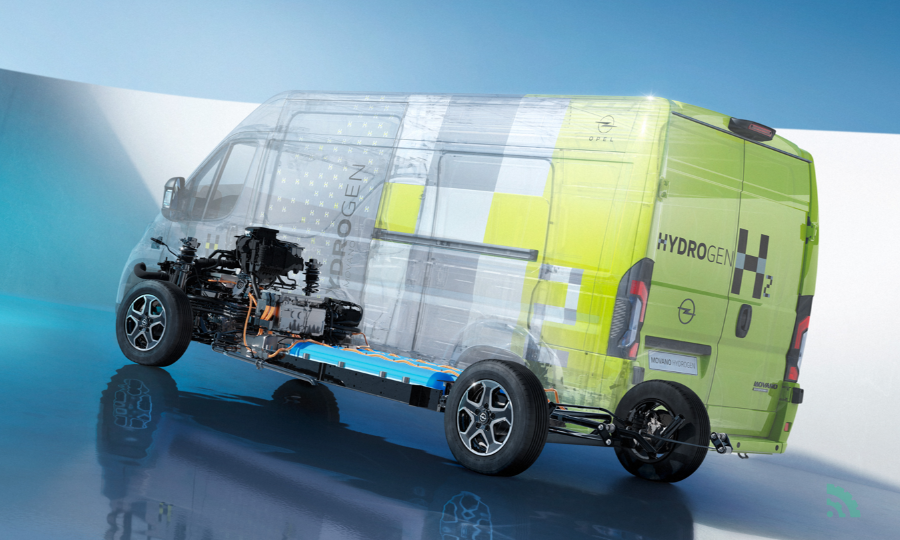
Stellantis has formally withdrawn from hydrogen fuel cell development, cancelling the launch of its Pro One hydrogen-powered vans and ending planned production at its Hordain (France) and Gliwice (Poland) facilities. The company cited limited infrastructure, high investment costs, and insufficient market incentives as key reasons for the decision.
The move ends Stellantis’ previous strategy of using hydrogen as a "third pillar" in its light commercial vehicle (LCV) range, alongside battery-electric and internal combustion options.
Production of the fuel cell variants was set to begin in summer 2025, with earlier low-volume deployments already trialled in France and Germany under the Citroën, Opel and Peugeot brands. While existing vehicles will remain in service, Stellantis has confirmed that no further manufacturing of hydrogen vans will take place.
The cancellation affects both medium and large van platforms, which were intended as part of the Pro One LCV brand. Despite the withdrawal, the company stated that staffing levels at the relevant plants will not be impacted. R&D resources previously allocated to fuel cell projects will be redeployed to other areas.
Stellantis also confirmed it is reassessing its investment in Symbio, the French fuel cell technology joint venture co-owned with Michelin and Forvia. Discussions are ongoing with partners to address the implications of the strategic withdrawal and ensure the “best interests” of the company are protected.
Symbio inaugurated a 50,000 unit-per-year fuel cell Gigafactory in 2023, and Stellantis’ withdrawal may lead to changes in ownership or direction.
This marks one of the most high-profile exits from hydrogen mobility in Europe to date, especially within the commercial vehicle sector. While manufacturers like Toyota and Hyundai continue investing in fuel cell vehicles, Stellantis' decision reflects its prioritisation of battery-electric and hybrid vehicles to meet near-term CO₂ reduction targets.
According to Stellantis, hydrogen LCVs are unlikely to see meaningful adoption “before the end of the decade,” and current market conditions do not support a viable commercial case.
Stellantis’ retreat from hydrogen technology highlights a growing divide in the zero-emission strategy space. With infrastructure challenges and slow regulatory momentum stalling fuel cell uptake, major OEMs are doubling down on battery-electric platforms to meet immediate emissions goals. The decision may signal a broader rebalancing of investment priorities across the LCV segment, with implications for joint ventures, component suppliers, and hydrogen ecosystem partners.
Tagged with: Stellantis, hydrogen vans, fuel cell technology, Pro One, Symbio, commercial vehicles, EV strategy, hydrogen mobility, battery electric vans
Disclaimer: This content may include forward-looking statements. Views expressed are not verified or endorsed by Tyre News Media.